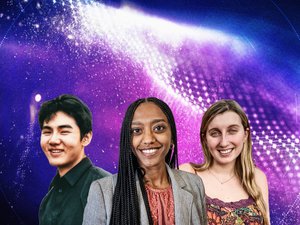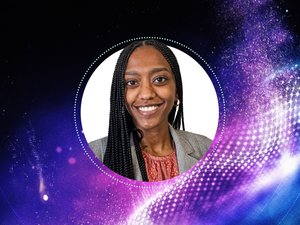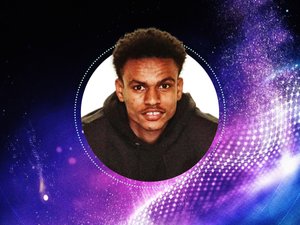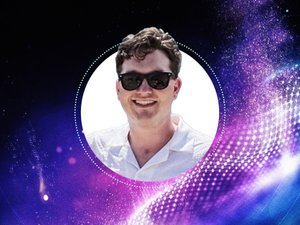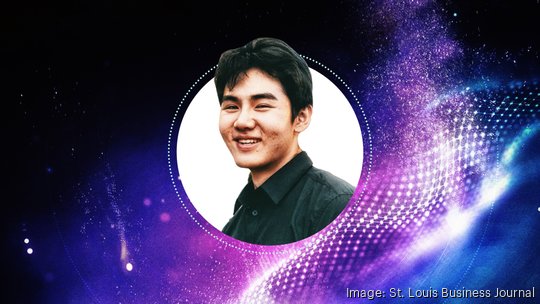
After the Covid-19 pandemic ended an internship opportunity in 2020, Minju Lee pivoted his plans for the summer. He enrolled in an innovation and entrepreneurship course at the University of Chicago.
The 25-year-old Lee says he had long avoided entrepreneurship because of its risks, but that University of Chicago course propelled him into business ownership. The recent Washington University graduate today is the founder of Mozi, a startup focused on creating an app to bring people together for events and hangouts. He also has recently started as a management consulting analyst with World Wide Technology and has served as chief financial officer for student medical technology incubator program Sling Health.
Lee is originally from Seoul, South Korea, and moved to the U.S. during middle school. He graduated from Washington University in May with a degree in mechanical engineering and a master’s degree in aerospace engineering.
Did you always envision becoming an entrepreneur? From a young age, I felt a natural inclination toward entrepreneurship, often finding myself thinking about inventive creations like wind energy-generating cars. However, it was a particular moment that truly ignited my entrepreneurial spirit. When Covid-19 led to the cancellation of my internship, I enrolled in a business course at the University of Chicago Booth School of Business. The summer topic was focused on innovation and entrepreneurship, taught by Starr Marcello, the dean of MBA entrepreneurship at Chicago Booth. It was during that class that I had a realization: I am an entrepreneur at heart. The course allowed me to channel my innate creativity into a career path I'm passionate about.
What has been your proudest accomplishment in your career so far, and what makes it stand out for you? My proudest accomplishment in my career thus far dates back to my experience in 2022 at Anheuser-Busch, during a gap semester when I undertook a co-op at their manufacturing plant in St. Louis. I chose the manufacturing side to gain firsthand experience and understand how one of the world's largest companies produces and delivers products to customers. While working there as a co-op, I discovered two significant opportunities for the company:
1. Efficiency improvement: I identified a recurring problem on one of the manufacturing lines, where a specific can was constantly causing jams, clogging the pasteurizer. I devised a solution that required minimal capital investment. By bringing together blue-collar workers, machinists, line managers and the plant manager, I pitched my idea, which was approved and implemented within two months. This solution saved 1.5 million-plus gallons of pasteurizer water annually and freed up 300-plus labor hours previously used for cleaning the clogged pasteurizer.
2. Innovative product development: I noticed that a considerable amount of clean, carbonated water was being wasted (roughly the equivalent of 3-4 Olympic-sized swimming pools in St. Louis alone). As a fan of sparkling water, I proposed turning this waste into caffeinated sparkling water, with some profits donated to neighborhoods in America struggling with water access, such as Flint, Michigan. This project gained traction, and I had the opportunity to work with Rob Clark, head of the innovation department, until the very end of my co-op. I even pitched the idea to the company's CEO and vice president of Innovation, placing it on their future development radar. I projected that this initiative could add approximately $100 million to 140 million in incremental revenue to the company.
Where do you see yourself and your career in five years, and what are the milestones or achievements you hope to reach during that time? Professionally, I have several key aspirations: 1. Advancement at WWT. 2. Growth of my startup, Mozi, which plays a vital role in my future. I plan to grow the company to the point where we have full-time employees and a sustainable revenue stream. The growth of Mozi will be a reflection of my entrepreneurial spirit and commitment to innovation. 3. Education continues to be an essential part of my growth, and I hope to start attending Harvard Business School around that time.
What do you believe St. Louis can do to engage more young entrepreneurs like yourself, and how can the city foster a more supportive ecosystem for startup growth? St. Louis is already paving the way in engaging young entrepreneurs, and I'm particularly impressed by the initiatives and communities fostering a supportive ecosystem for startup growth. However, there is still untapped potential, especially in the downtown area. While the city boasts beautiful and historical buildings, the downtown scene doesn't quite match the vibrancy found in cities like Chicago or New York. This disparity saddens me at times, but it also presents an opportunity. By focusing on safety and accessibility, St. Louis can revitalize these areas and attract more crowds to enjoy the city's charm.
What do you perceive as the biggest advantage of being a young entrepreneur in St. Louis, and how has the city's environment contributed to your own growth and success? The biggest advantage lies in the city's unique blend of accessibility and opportunity. St. Louis is large enough to offer great resources, connections with large companies, successful entrepreneurs and investors, yet small enough to foster a close-knit community where reaching many influential people is feasible. For instance, my chief operating officer was able to arrange a meeting with Maxine Clark, a renowned St. Louis entrepreneur and philanthropist. This level of accessibility is something I find hard to imagine in other cities.
Leaders in St. Louis are exceptionally engaged with younger individuals, and I deeply appreciate this supportive environment. Another noteworthy advantage is the cost of living, which is relatively low compared to other major entrepreneurial hubs. This financial aspect, combined with access to top-tier talents through local universities like Washington University, positions St. Louis as an ideal location for burgeoning entrepreneurs.
Who have been your biggest mentors, and how have they influenced your entrepreneurial journey? Without a doubt, my grandpa has been a significant inspiration, even though he passed away when I was just 7 years old. A successful entrepreneur in South Korea, he dedicated much of his later life to philanthropy, such as donating a majority of his wealth to build one of the largest foster care facilities in Korea. His legacy continues to inspire me, both in my entrepreneurial pursuits and my commitment to giving back to society.
Currently, I am grateful for the guidance of mentors like John Dozer and Steve Pelch. John, whom I met in church, has taught me valuable lessons in leadership, the importance of sharing a vision, and inside out change of a leader. His insights have shaped my approach to team building and strategic planning. Steve Pelch, former COO of Emerson Electric, has been instrumental in guiding my career. Through his example and advice, he has illuminated the importance of treating people with respect, integrity, and humility. His wisdom has helped me navigate the complexities of the business world with empathy and determination. These mentors have not only guided my professional journey but also influenced my personal development, fostering a mindset that values humility, compassion, and excellence.
